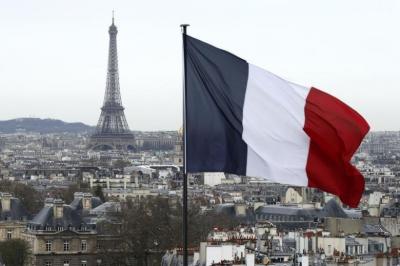How different were the American and French revolutions?

Another July 4th is now behind us, but another July 14th (Bastille Day, the initial act of the French Revolution) lies ahead of us.
Superficially, the two “revolutions” — those of the Americans and the French, which occurred just over a decade apart — may seem like two sides of the same coin. But they are not.
The conflicts were very different in their foundations and very different in their effects. And God is at the heart of that. In the simplest of terms: The American Revolution was pro-God. The French Revolution was anti-God.
Ronald Reagan articulated it so well: “Here in this land, for the first time, it was decided that man is born with certain God-given rights. We the people declared that government is created by the people for their own convenience. Government has no power except those voluntarily granted to it by we the people.”
Then he added, “There have been revolutions before and since ours, revolutions that simply exchanged one set of rulers for another. Ours was a philosophical revolution that changed the very concept of government.”
In 1775, the American Revolution began. On July 4, 1776, the United States of America declared independence from Britain, while at the same time, declaring dependence upon God. They mention God four times in the Declaration of Independence. Above all, they note that He is the source of our rights. In 1787, America wrote up its Constitution, which the framers signed “in the year of our Lord.” The Constitution went into effect in 1789.
On July 14, 1789, France began its revolution, with the storming of the Bastille prison in Paris.
The newly invented guillotine was rigorously put to use, as the French revolutionaries beheaded thousands of Frenchmen, who were nobles or churchmen or otherwise deemed as counter-revolutionary. They beheaded the king (an act known as regicide) and the queen. Soon the revolutionaries began consuming their own ranks. Eventually, Maximilien Robespierre, the quintessential French revolutionary, was beheaded himself.
The French Revolution declared war on Christ and the Church, which in France was mostly Roman Catholic. They desecrated many of the churches — including Notre Dame itself. They forbade the mass, but instead lifted a half-naked actress onto the altar of that famous cathedral. They renamed Notre Dame, Ground Zero in the city of Paris, as “the Temple to the Goddess Reason.” And they worshiped her.
In order to declare further independence from Christian influence, they eliminated the seven-day week with its Jewish Sabbath (generally on Saturdays) and the Lord’s Day (always on Sunday, to remember the day Jesus rose from the dead).
Instead, the French changed the week to 10 days, thus jettisoning any Judeo-Christian influence. Furthermore, they changed the counting of the years, from 1791 to Year One of the (French) Republic.
When people say that the founding fathers meant nothing by dating the Constitution “in the year of our Lord,” we should remember that the French not too long after explicitly rejected “the year of our Lord.”
About a dozen years later, Napoleon (whose rise to power ended the revolution) abolished the bulk of these anti-Christian actions.
While the United States, with its Judeo-Christian foundation, grew and flourished, what happened in France? Not only did blood flow in the streets, not only was virtually any Christian expression disallowed, but the government eroded under revolutionary fervor.
A quick Google search on how many governments France has had since their revolution yields this result: “Since 1789 and the French Revolution, France has had 14 constitutions, including 5 republics. General de Gaulle put the current constitution in place in 1958.”
For my series of Providence Forum films on America’s Judeo-Christian roots, I had the privilege of interviewing Dennis Prager. He said, “The American Revolution and French Revolution is the [current] battle in the United States. Which revolution will prevail? Now, they loathed the idea of God in the French Revolution; the secular republic was the ideal. In America, they believed in secular government — but in a God-based society, because rights come from God in America.”
But tragically, as Dr. Os Guinness, a great Christian writer and thinker, told us in the same series: “The French view has virtually swept the world. Chinese communism, the fruit of 1789. Russian Marxism, the fruit of 1789. You know, much of so-called liberal democracy in Europe, the leftwing progressivism, [is] the fruit of 1789. Most of the American intellectuals, 1789. And that’s why they have very deficient views of freedom. And the tragedy of America, it’s the one country whose political order was decisively shaped by the Bible and by the Reformation, and yet, it’s rejecting the distinctiveness of its roots.”
Ideas have consequences. And as John Stonestreet of the Colson Center likes to add: “Bad ideas have victims.”
Jerry Newcombe, D.Min., is the executive director of the Providence Forum, an outreach of D. James Kennedy Ministries, where Jerry also serves as senior producer and an on-air host. He has written/co-written 33 books, including George Washington’s Sacred Fire (with Providence Forum founder Peter Lillback, Ph.D.) and What If Jesus Had Never Been Born? (with D. James Kennedy, Ph.D.). www.djkm.org? @newcombejerry www.jerrynewcombe.com



























